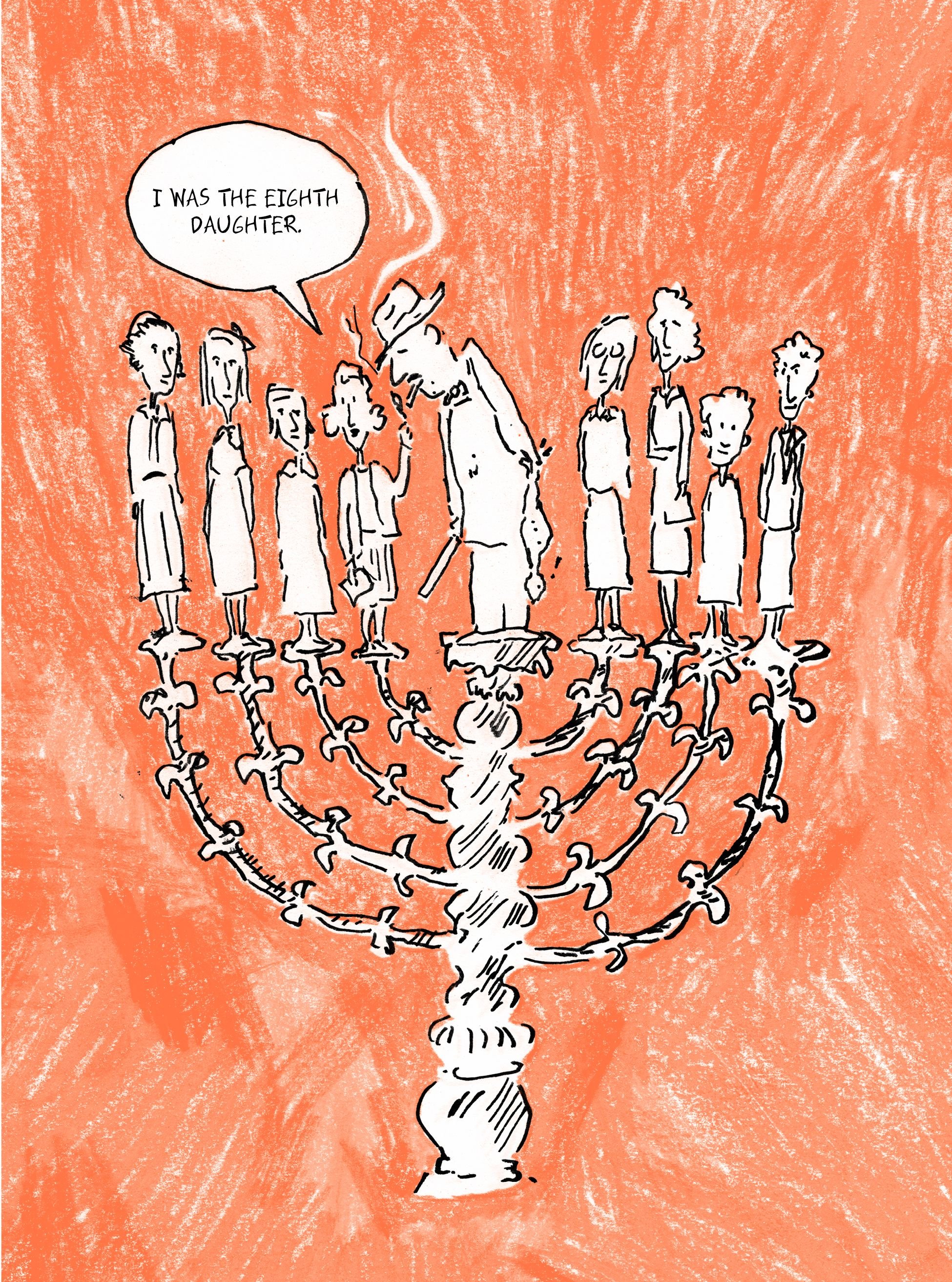
An NPR Best Book of the Year
A Washington Post Best Book of the Year
A Chicago Tribune Fall "Best Read"
An Alma Most Anticipated Book of November
From the prize-winning author of The Three Escapes of Hannah Arendt, a stunning graphic narrative of newly discovered stories from Jewish teens on the cusp of WWII.
When I Grow Up is New Yorker cartoonist Ken Krimstein's new graphic nonfiction book, based on six of hundreds of newly discovered, never-before-published autobiographies of Eastern European Jewish teens on the brink of WWII-found in 2017 hidden in a Lithuanian church cellar. These autobiographies, long thought destroyed by the Nazis, were written as entries for three competitions held in Eastern Europe in the 1930s, just before the horror of the Holocaust forever altered the lives of the young people who wrote them.
In When I Grow Up, Krimstein shows us the stories of these six young men and women in riveting, almost cinematic narratives, full of humor, yearning, ambition, and all the angst of the teenage years. It's as if half a dozen new Anne Frank stories have suddenly come to light, framed by the dramatic story of the documents' rediscovery.
Beautifully illustrated, heart-wrenching, and bursting with life, When I Grow Up reveals how the tragedy that is about to befall these young people could easily happen again, to any of us, if we don't learn to listen to the voices from the past.
Reviews of when I grow up
“Deeply affecting yet often joyful … … Krimstein’s loose-lined drawings shift between sobriety and humor, while footnotes provide context … By depicting the personalities of youth lost—with easy beauty and a lack of preciosity—rather than how they died, Krimstein conveys the depth of human and cultural loss that much more profoundly.”
- Publisher’s Weekly Starred Review“Readers will leave this book with a sense of gratitude for Krimstein’s innovative vision of a time and place, rescued from oblivion.” -Emily Schneider, Jewish Book Council
Unflinchingly examining gender and class bias, spiritual beliefs, political affiliations, the conflict between faith and worldly love, these mesmerizing accounts reflect the young writers’ deep commitment to depicting the Jewish experience as hauntingly complex and endlessly vital. — Thúy Ðinh, writer and book critic NPR, 100 Notable Reads of 2021
Reviews from Goodreads members
12/23/2021 by Zoe Frichter:
I finished this book in one sitting and immediately consider it among the best I have read in my life. I am so grateful to read their autobiographies; I felt each story viscerally. Throughout my formal education, I was taught Jewish history in Europe, the Before, but I never felt myself as experiencing the vibrancy or culture of a shtetl in Yiddishuania until now. A must-read for every single Jew, teenager, adult, human.
12/30/2021 by Steph:
The story of how these texts, hidden upon the invasion of Poland in 1939, were hidden and saved until just a few years ago, is breathtaking and worth reading for that alone. But it’s also a moving portrait of a particular time and a bittersweet reminder that some things about being a teenager don’t change. I love books like this and A Bintel Brief, slices of Yiddish culture, a world that is the same and different all at once.
1/10/2022 by Alicia:
This book is a treasure. The teenagers and young adults whose autobiographies were included are vibrant and compelling. The darkness of knowing what likely happened to these six people hangs over the vibrancy of their youth, but doesn't smother it. Krimstein's art is the balance between these two dichotomies, using a bright orange with heavy black lines.
This book has earned a place on my shelf beside Maus and The Diary of a Young Girl. Please give this a read, it is quite possibly one of the most important books of our time.1/12/2022 by Sonia Schoenfield:
In the 1930s a Yiddish institute in what is now Lithuania decided to study the lives of teenagers by holding an autobiography-writing contest with a substantial monetary prize. The winner was to be announced on September 1, 1939, which was the day that Hitler invaded Poland and World War II began. Nothing would ever be the same for the more than 700 teenagers who sent in their essays. In fact, most of them would not survive the war. But their writings did, thanks to several "heroes" that the author acknowledges in the Preface. Six of these stories are shared, revealing the lives, hopes and dreams of the writers. Their stories are heartbreaking, funny, touching, powerful. Definitely worth reading.





